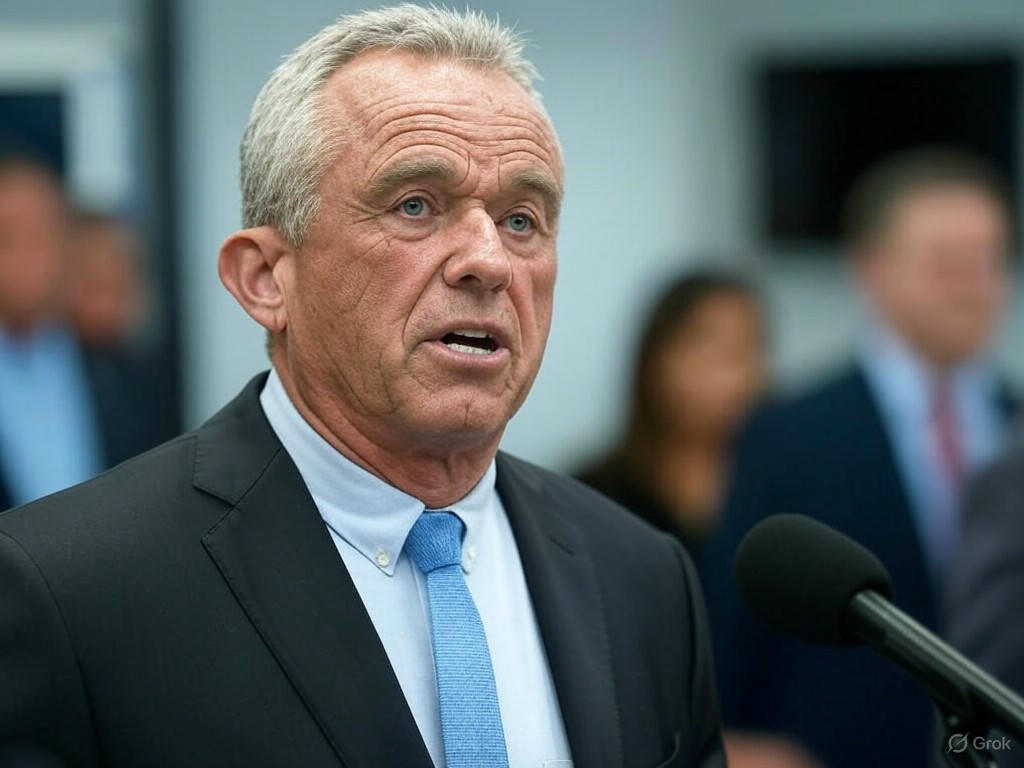RFK Jr. Shakes Up CDC: Entire Vaccine Advisory Committee Dismissed
In a bold and unprecedented move, Robert F. Kennedy Jr. has dismissed all 17 members of the Centers for Disease Control and Prevention’s (CDC) vaccine advisory committee, sparking intense debate across the nation. Announced on June 9, 2025, this sweeping decision has raised questions about the future direction of vaccine policy in the United States and the role of scientific expertise in public health. Kennedy, known for his controversial stance on vaccine safety, appears to be signaling a major shift in how vaccine recommendations and approvals are handled at the federal level.
The CDC’s Advisory Committee on Immunization Practices (ACIP) has long been a cornerstone of vaccine policy, composed of medical experts, scientists, and public health officials who provide guidance on immunization schedules and safety protocols. Their recommendations have shaped national health strategies, influencing everything from childhood vaccinations to emergency responses during pandemics. By removing every member, Kennedy has effectively cleared the slate, leaving uncertainty about who will replace them and what criteria will guide future appointments. Critics argue that this move undermines decades of established science, while supporters claim it’s a necessary step to address perceived biases within the committee. Kennedy has yet to provide detailed reasoning for the mass dismissal, but his history of questioning vaccine safety suggests a desire to reshape the narrative around immunization.
Public reaction has been swift and polarized. Health professionals and advocacy groups warn that dismantling a trusted advisory body could erode public confidence in vaccines at a time when misinformation is already rampant. Dr. Emily Harper, a pediatrician and vocal advocate for immunization, expressed concern that this decision could lead to delays in critical vaccine approvals or updates to immunization schedules. On the other hand, some parents and activists who share Kennedy’s skepticism of pharmaceutical influence in public health have hailed the move as a victory for transparency. Social media platforms are abuzz with opinions, ranging from calls for accountability in vaccine research to fears of increased outbreaks of preventable diseases like measles or polio.
Looking ahead, the implications of this decision could be far-reaching. The CDC will need to rebuild the advisory committee, a process that could take months and may face scrutiny over the qualifications and impartiality of new appointees. In the interim, vaccine policy decisions might stall, potentially affecting public health campaigns and emergency preparedness. Moreover, this action sets a precedent for political influence over scientific bodies, raising broader questions about the balance between governance and expertise in health policy. As the nation watches, the focus remains on whether Kennedy’s vision will prioritize public safety or deepen existing divides over vaccination.
For now, the dismissal of the CDC’s vaccine advisory committee stands as a defining moment in Kennedy’s tenure. Whether this marks the beginning of a new era in public health or a risky deviation from scientific consensus, only time will tell. The health of millions hangs in the balance as this controversial chapter unfolds.


